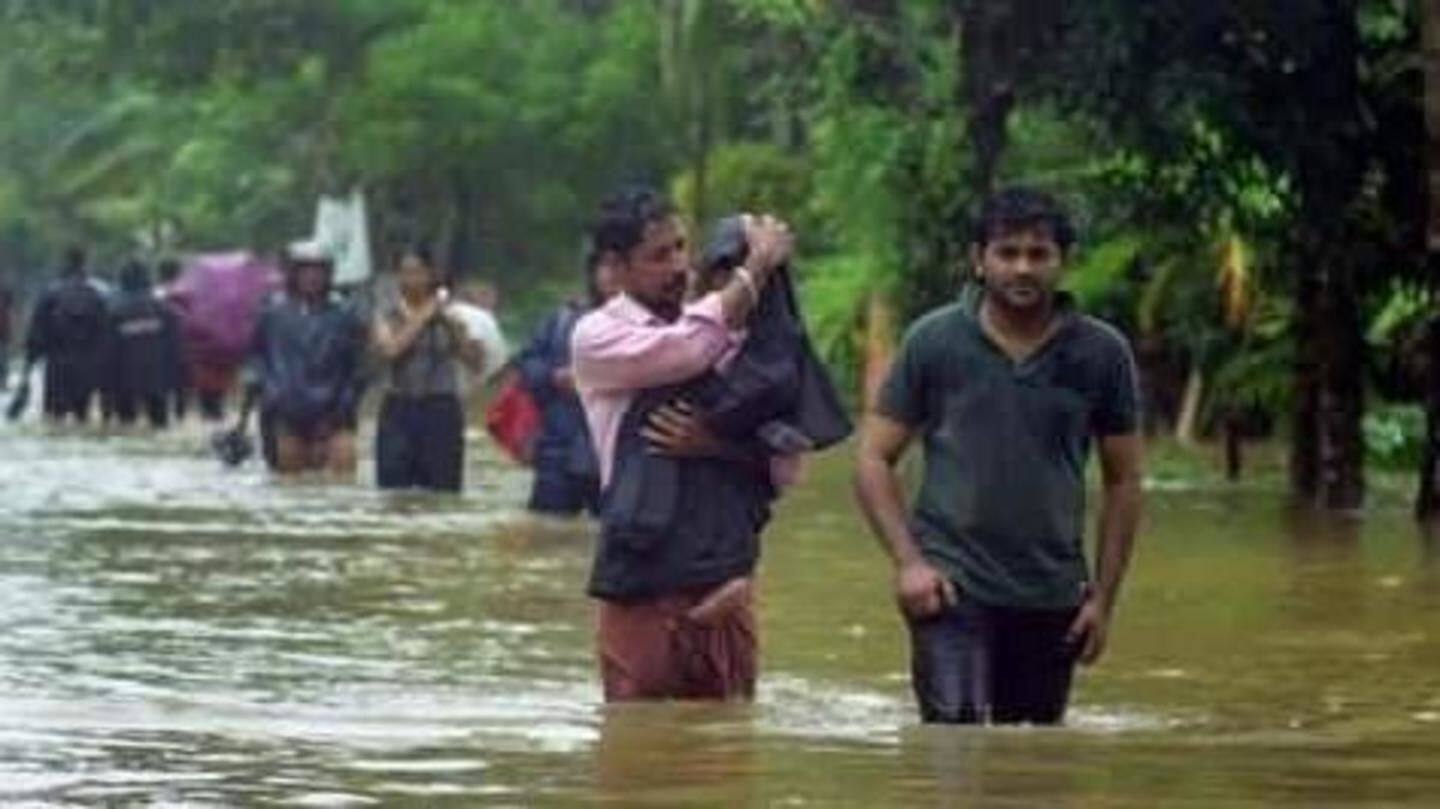
Kerala floods: Experts say flood damages could have been reduced
What's the story
Kerala has been ravaged by floods since August 8, leading to 357 people losing their lives, and over Rs. 20,000cr worth of property being damaged. However, now, experts say that the intensity of the floods could have been reduced to a considerable extent had the state released water from its 39 dams from July-end, when reservoirs were already at almost full capacity. Here's more.
Data
Data indicates Kerala's dams were at full capacity in July-end
Data from the Kerala State Electricity Board indicate that water levels in the state's dams had been on the rise since mid-July, and most reservoirs had reached 85-100% of their capacity by the end of July. Notably, Kerala had also seen excess rainfall for two months - 15% extra in June, and 18% more in July - before the events of August.
Expert opinion
IIT-Delhi Professor says damages could have been reduced by 20-40%
Commenting on these findings, IIT-Delhi's Civil Engineering Professor Ashok Keshari said that "flood damages could have been reduced by 20-40% had the dams and reservoirs released the water slowly in the two week period when the rains had subsided." However, owing to the state not having an early warning system, authorities only released water when the danger levels had been reached.
Warning system
An early warning system could have significantly helped Kerala
In order to be able to release water in advance, Kerala needed a reliable rain forecast from the India Meteorological Department (IMD), and a flood forecast from the Central Water Commission. However, the National Flood Forecasting Centre had no stations in Kerala, and hence couldn't warn the state in advance. Consequently, dam gates were opened only after extremely heavy rainfall battered Kerala.
Do you know?
Kerala received 164% rainfall during August
In August, Kerala received 164% of the rainfall it normally does in that period. Meanwhile, the district of Idukki, one of the worst affected districts in the state, received the highest rainfall - a whopping 92% more than normal, or almost double its normal quota.
Expert opinion
TERI Professor also believes damages could have been reduced
Echoing the IIT-Delhi Professor's views, Arun Kansal, Dean and Head of the Department of Water Studies at TERI School of Advanced Studies, said, "It can be argued that the dam gates could have been opened sooner during the periods of less rainfall, especially if the dams had reached 90-100% capacity". However, he added the forecast of extreme weather is often unpredictable.